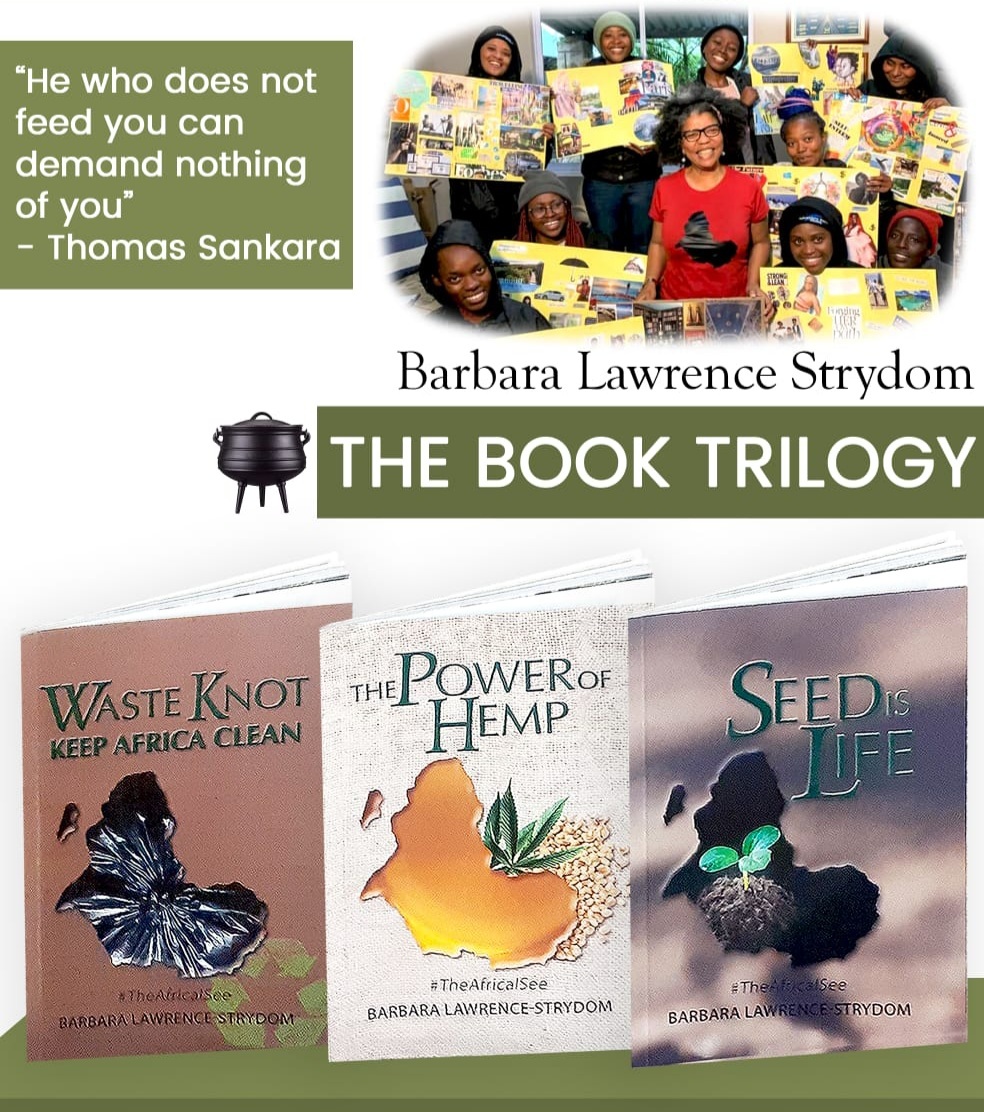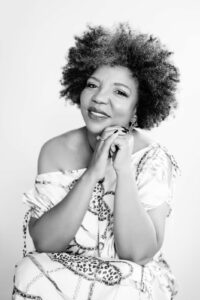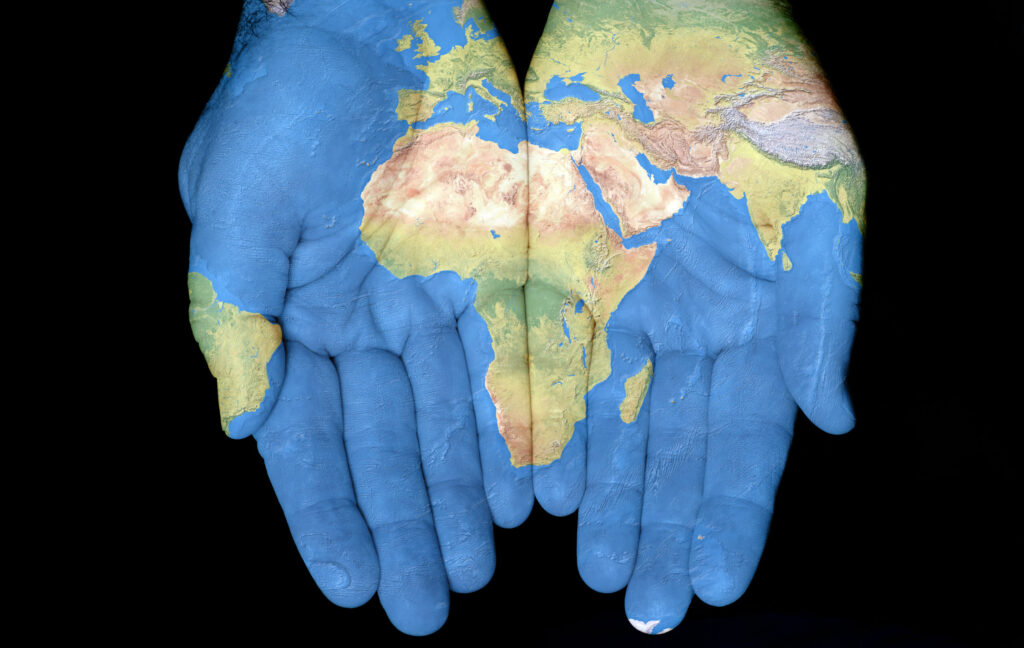As September ended, I was reflective on some of the interesting speaking engagements I delivered through the month, starting with Redefining Success at the second Women in Healthcare Summit in Johannesburg, to Seed is Life at the Food Organic Farming Festival at Secret Sithela in Munster on the South Coast of KwaZulu-Natal, to The Power of Hemp and Reimagining Africa at the second Mpondo Literacy Festival in Lusikisiki, to a Heritage and the Law virtual message for a church group and the ‘Her’ in Heritage for a Mrs South Africa finalist fundraising high tea event. All these engagements had me pondering on the past, mindful of today and determined to be even more intentional for future generations.
I recall 30 years ago arriving in London on an au pair opportunity, where I first discovered that I identify as African, as a person from the continent of Africa. It’s been a beautiful journey of self-discovery and self-determination to carve my parallel reality in a South African context. A former bank manager by profession, with experience in landfill management and a passion for capacity building and community development, I have had the opportunity to work in the ESG space – Environment, Social and Governance – in a variety of industries on the continent. I was certainly not always aware of environmental issues, blindly focused on my banking career, until I could no longer ignore my late husband’s voice on repeat, cautioning me in his words: “There will be NO bank if there is NO environment.”
Shirleigh Strydom, an environmental scientist graduate from Southern Vermont College, Massachusetts in the late ’80s, returned home after 18 years in the USA to dedicate his life to the Environmental Agenda of Southern Africa. This truly exposed me to concepts of Environmental Impact Assessments and the conflict of development and environmental impact to integrated waste management discussions and debates. It’s this exposure which truly awakened me to looking at the past, observing the present and becoming intentional about the future, those who will arrive after us. In fact in the book WASTE KNOT, part of The Book Trilogy series, I capture the story of the black bag while reflecting on our waste travel stories both across Africa and globally. I have continued to share this story to honour his legacy and his slogan – Keep Africa Clean.
The travels in the southern region and the many training opportunities across the continent were definitely reasons I agreed to be a volunteer on a 40-day road trip from Cape to Cairo, 11 countries, 22 passport stamps over 12 500 km west coast to east coast. I was raised on a farm in Nqabeni and later spent a few years in Langalibalele, Oribi Gorge. Both these locations involved six to12 km from home to school each day, each way, so walking and learning are the foundation of my world of learning. I have backpacked the UK and Europe, curious to go to the places I had read so much about growing up. So it’s this curiosity that would give me the courage to take on such a mission. I must also not negate the impact of grief on this decision, as I had lost my husband earlier that year. I was grateful to get into a car and just drive and drive, all the while processing the reality of the new life I was navigating.
There are countless messages I received on this road trip but the two things that really stood out for me were how vast in size Africa is and how fertile the land was even across the Sahara Desert; along the Nile was flourishing and green. The tasty rice in the northern region of Malawi, with the fish from Lake Malawi, to the fruit trees hanging over the highway of Tanzania, where 50km per hour is the speed limit, had me wondering where I had missed all the abundance in the narratives I had consumed. It took me back to my childhood and the fresh food we ate from the farm. What happened to that way of living and how was that replaced with retail therapy? What were the practices my grandmother, Dinah Mkhize-Lawrence, preserved over the years and where had they disappeared to? And my grandfather, Abraham Lawrence, knew every plant and administered herbs for all our ailments, from allergies ‘isihlungu’ to breathing difficulties, including to the animals on the farm. How much had all my education replaced the family’s indigenous knowledge?
I was inspired to write the book Seed is Life as part of the series as I began to understand the fight for our food systems and our sovereignty and interrogate language. What is organic to me as an African and does this word glamourise our practices and return the food I plant to me at an exclusive price? How do I begin to give this observation a context and frame it to avoid becoming a victim of yet another system. The book explores the affirmations of ‘seed’ and allows for a discussion to explore seed to soil, our land story and what has distanced us from our family, community or clan practices: The harvest and seed-sharing we witnessed amongst the elders growing up. Actually, of late, I am curious about the exchange of flower slips and little fruit trees we had to hold gently as we returned from visits to relatives and family friends. The visits always ended with a walk around the garden or orchard and this beautiful exchange happened so organically. It also reminds me of the gift-bearing practices we had in our culture; you always left home with something for your host. It is this practice I seek to activate by handing out the ‘Made with Love in Nqabeni’ TRAVEL POUCH at every speaking or training event I am invited to participate in.
The Cape to Cairo Road trip highlighted for me that our hand-made products were not geographically labelled and how quickly the story or the experience of the item can be erased. There is so much to explore with the localised ‘Made with Love’ label and I look forward to partnering for impact to share the stories of villages, small towns and suburbs which need to be shared – our stories.
So much has happened in the world since that amazing, life-changing journey and, although I’ve climbed Mt Kilimanjaro twice as a day trip to meditate and later as a volunteer returning to the last camp as they finished off their summit, I have continued to explore as much as possible of our country and the neighboring countries, with a post-lockdown meander from the southern tip of Africa to Swakopmund, this time not compelled to attempt Dune 7, an earlier achievement; I learn so much about myself and meet the most beautiful people along the way.
The annual Bush Desert walk in Jwaneng, Botswana, is one such beautiful memory. A much cooler July day, the last weekend of the month and hundreds of us gathered from across SADC to do the 15km or 30km walk across the desert. Although I had a 15km ticket I was given a 30km arm band and – guess what – I could not take the chance but to do the 30km in case I chickened out at 15 and didn’t get the medal at all. Spurred on by a team from Lesotho and Tanzania, I did the unpractised 30km that day. As exhausted as I was that night, I joined the electric slide dance group and created beautiful memories at the glampsite in the desert.
The next day I was off to start The Book Trilogy book reading tour with Botswana University students in Gaborone, an intimate group. The third book of the series, The Power of Hemp, explores what hemp is to us as Africans as the legislation is changing. It also was inspired by the past seven years, interacting with the cannabis community of South Africa. The books are all hand size, with a maximum of 50-70 pages. The intention was to allow families, youth groups, community and religious communities to feel at ease holding discussions around the changes, the individual and collective trauma, the environmental footprint, the strategic approach of engagement and, again, the seed story which we no longer have access to in our communities.

I often open the discussions with reference to language and our culture by asking the question: What is a shirt called in isiZulu or Afrikaans? If hemp was part of our language, then where is our seed today? If the hemp seed has disappeared, what could guarantee that carrots or imfino would be here for our grandchildren and what is our individual and collective responsibility? I have since completed seven of the nine provinces of our country with intimate book reading sessions and I have learned so much while afforded the opportunity to impart an integrated basket of knowledge through the UNDER AFRICA’s TREES reading programme. Currently exploring the 7M’s of Africa, which included a solo backpack from Maputo to Tofo to celebrate my 50th birthday two years ago, I had the privilege of doing a book reading in Inhambane, Mozambique’s cleanest city, to a group of young people in partnership with Smile Mozambique. I love the AuntyB Conversations under Africa’s Trees as it has gifted me so many opportunities to share the view of Africa I have been so blessed to witness. It’s the funny memories made camping in the Serengeti with a dear friend, a girl trip to watch the migration with a tuck in by Zebra at the Ngorongora Crater, much needed heat, to the tsetsi fly at the Tarangire National Park, all instigated by the numerous family vacations following nature across our country: Tala Tala, Hluhluwe, St Lucia, Sodwana Bay, Mkhuze, Kruger, dassie in Oribi.
I am aware of the multiple challenges we are faced with and, in the midst of it all, I have a vision which fuels my passion: Build Africa each day, one person at a time. A mom of two young men, 26 and 27, a citizen scientist with a desire to learn continuously, exploring our rich indigenous knowledge with vigour and sharing context of our diversity, sums up my world. Above all I love the dreams from my ancestors, which have given me such clear direction and the conversations with God, making my earthly journey filled with hope, courage and wisdom.
“I tell my story to self-liberate.” Barbara Lawrence-Strydom

Monica Dart Photography Project Visible 2023 – 50 women over 50
Chief Enlightenment Officer of BDLS AFRICA (PTY) Ltd. Social Entrepreneur, Capacity Builder, Transformation Translator, Diversity Practitioner, ESG Expert , Storyteller, Visionary, Strategist and Author
Barbara Lawrence-Strydom was raised on a farm in Nqabeni, rural KwaZulu Natal. She is a mother of two young men, both exploring their respective interests in agriculture and the environment. Barbara is the CEO (Chief Enlightenment Officer) of BDLS AFRICA (PTY) Ltd holding company established to build the African continent through storytelling, capacity building for individuals, families, youth, entrepreneurs, and corporate organisations. She was appointed as a Bank Manager in 2003 and worked in the financial industry for 18 years. A BCOM graduate with a major in Business Management, multi skilled through the accelerated management development program she has mentored and coached her staff, youth, entrepreneurs across a variety of industries. Barbara has a deep understanding of organic intelligence which is displayed through her ever-growing curiosity of her own cultural, African, and spiritual awareness and her evolved view of integrated living. She was honoured as the 2018 recipient of the Best Social Entrepreneur Africa award from CWENA (Christian Women Entrepreneur Network Africa) and humbled to be recognised for serving a building agenda and a nominee for GLEBM’s Exceptional Award of Excellence in Leadership from Abuja, Nigeria this November 2022.
She is a storyteller, passionate traveller, heritage photographer, legacy shaper, mountain climber (Mt Kilimanjaro 2018), author of THE BOOK TRILOGY – Waste Knot, Seed is Life and The Power of Hemp and the founder of the Master Dreamer program. This program facilitates vision board sessions which is a story telling tool utilised to facilitate individual visions, values, and goals. To date over 2000 sessions have been facilitated from boardrooms, across borders including a session with teenagers in Beijing during a visit to China, the NEWF Scuba Divers for both Labs, over 35 Royal Houses -Chiefs, Princesses, and Communities across 7 Provinces, in suburbs, rural villages and in townships. Her current collaboration with Centre for Mental Wellness and Leadership in the Trauma-Informed and Trauma- Focused healing conversations as a co-facilitator in the re-imagining in pain has become a well sort after program which has now expanded to the Enviro/Eco- Trauma-Informed Healing Conversations as the traumas of the environment mirror our distress post COVID and SGBVF upsurges. Barbara has also developed the MADE WITH LOVE label from her village in Nqabeni with environmentally friendly, reusable Travel Bags/pouches under the AUNTY B brand (www.auntybcollection.com) currently an online shopping portal under construction. The label was launched to celebrate locally made products while amplifying our villages and suburbs by geographically mapping our handprints and linking them to our local stories to increase our tourism footprints. The travel pouches have been gifted at all her speaking events to activate DNA memory of the bearing of a gift to present to our hosts, a longstanding tradition. Her work is intentional to permission, to role model while genetically editing the return to ourselves and to the source of our life.
“Without Vision my people perish.” Barbara Lawrence-Strydom
The Africa I See – her hashtag to amplify a view of Africa celebrating our stories for us by us” from the Southern Tip of Africa to her Pyramids – TOGETHER
To contact Barbara: strydombd@gmail.com,
Website: www.bdlsafrica.com,
Instagram: barbaralawrencestrydom

